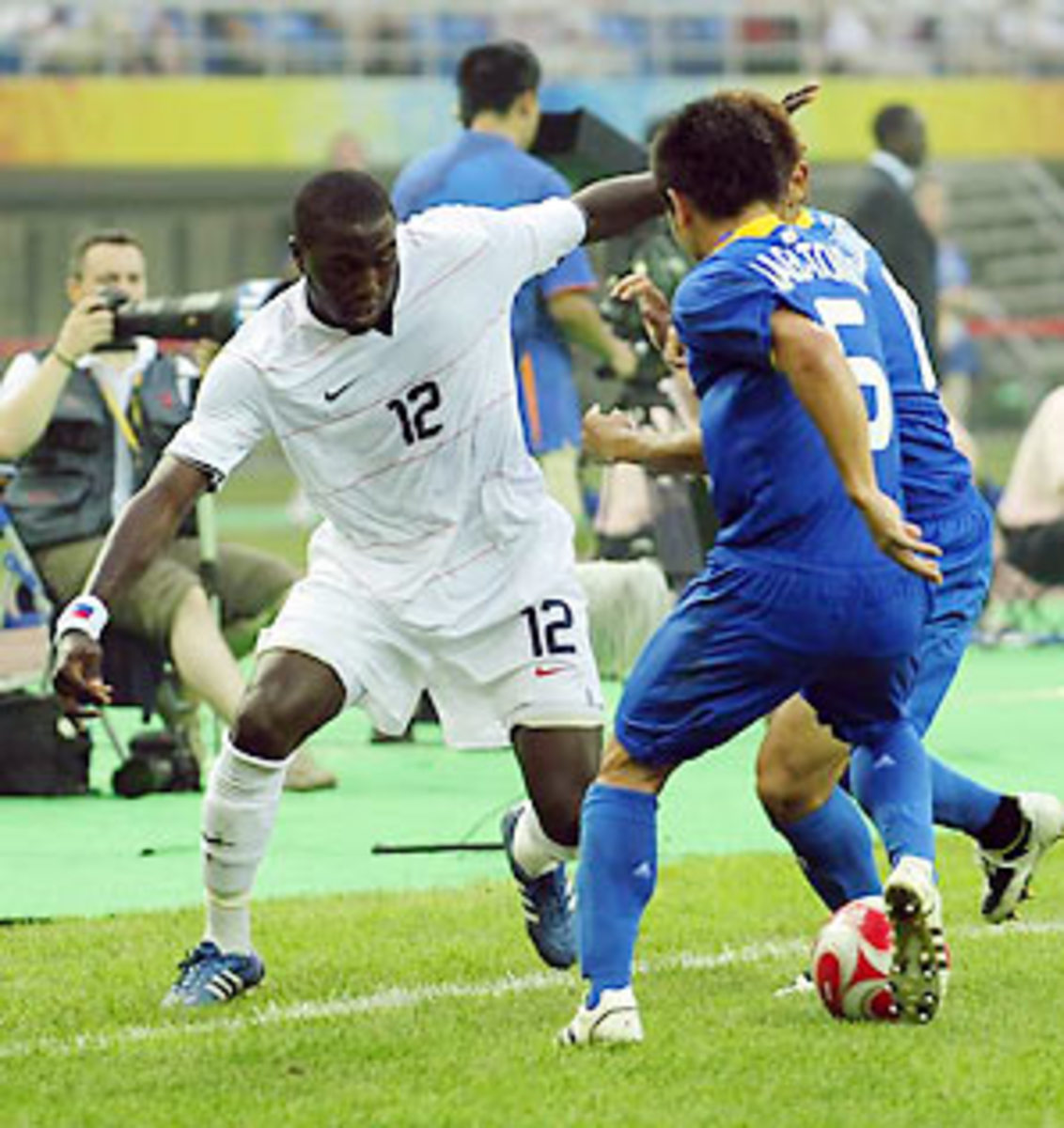Nowak's curious decision to leave Altidore on bench pays dividends
TIANJIN, China -- When you're the U.S. soccer coach, your team hasn't been scoring goals and you leave a $10 million striker (Jozy Altidore) on the bench to start the Olympic opener, things had better turn out right.
But Peter Nowak is a ballsy coach, and after the U.S.'s huge 1-0 victory here over Japan, his decision to bench Altidore, as surprising as it may have been, is unassailable. In fact, it reminded me a lot of Bruce Arena's stunning decision to face Portugal in the 2002 World Cup opener without pre-tournament Sports Illustrated coverboy Clint Mathis, only to see the U.S. pull off a 3-2 upset.
"I think everybody was surprised," said U.S. forward Freddy Adu of Altidore, who came on as a sub in the 74th minute. "But whoever Peter puts out there has to get the job done. This team came together today and we fought and we got our win."
And now the U.S. finds itself in an unexpected position: alone in first place atop Group B with three points, ahead of the Netherlands (one), Nigeria (one) and Japan (zero).
My feeling is that Altidore will start games in this tournament, not least because Nowak said he made his decision in part due to Japan's formation. "When we had those two [pre-Olympic exhibition] games we tried to find the way you play versus Japan," Nowak explained afterward. "Because of the way they play with a 4-2-3-1, we want to not only match it with Freddy but also give Freddy a little bit more freedom between those four and those two."
"We tried to drag them out a little bit so you can find the spots for Robbie Rogers and Stuart [Holden to create in the midfield], which we did."
Rogers was dangerous all night on the left wing, and Holden found the most important open spot of the game, running onto a deflected Marvell Wynne cross in the 47th minute to score the game's only goal.
For one game, at least, Nowak's decisions were spot on. His three overage picks were solid: Brian McBride didn't create a lot of chances up front, but he did hold the ball well and absorbed several fouls. Goalkeeper Brad Guzan controlled his box with authority. And Michael Parkhurst worked so well with fellow center back Maurice Edu that you forgot Parkhurst isn't used to playing on a four-man back line while Edu isn't used to being a defender at all.
Nowak's move to experiment in the back with Edu (normally a central midfielder for Toronto FC and the U.S. senior team) was another winner. He first tried it during the U.S. under-23 team's two-game tour of China last year, and recent injuries to defenders Jonathan Spector and Nathan Sturgis forced Nowak into makeshift mode on the back line.
For my money Edu was the Man of the Match, snuffing out Japanese attacks, covering loads of space and communicating well with defenders Parkhurst, Wynne and Michael Orozco. Even when Edu made a mistake, allowing YoheiToyoda to latch onto a looping ball in the U.S. box in the 88th minute, his remarkable recovery ability ended the threat.
"I thought [Edu] was one of our best players out there today," Parkhurst said. "I don't think he lost a tackle all game. It just seemed like every time he got in a one-on-one situation he came out on top."
For Nowak, it's Edu's versatility that makes him so valuable. "I'm very happy with the way [Edu] played tonight," Nowak said. "We're looking forward to having this kind of guy with these kinds of qualities not only for the Olympic team but also for the senior team."
The senior team probably won't ever ask Edu to play as a center back, but it's useful to know that he can do it at the international level. "It's growing on me," said Edu, who'd never played as a defender for more than a couple games in college (at Maryland) and in MLS. "I just want to win games, so if that means we're going to win then I'm happy there."
And so an experiment that Nowak tried a year ago in China when nobody was paying attention is paying off here at a time when the soccer world is watching. Anticipating problems, finding solutions, taking smart risks: they're the marks of a good coach, one whose U.S. men are alone in first place.
Not bad, Peter Nowak. Not bad, you young Americans. Not bad at all.






